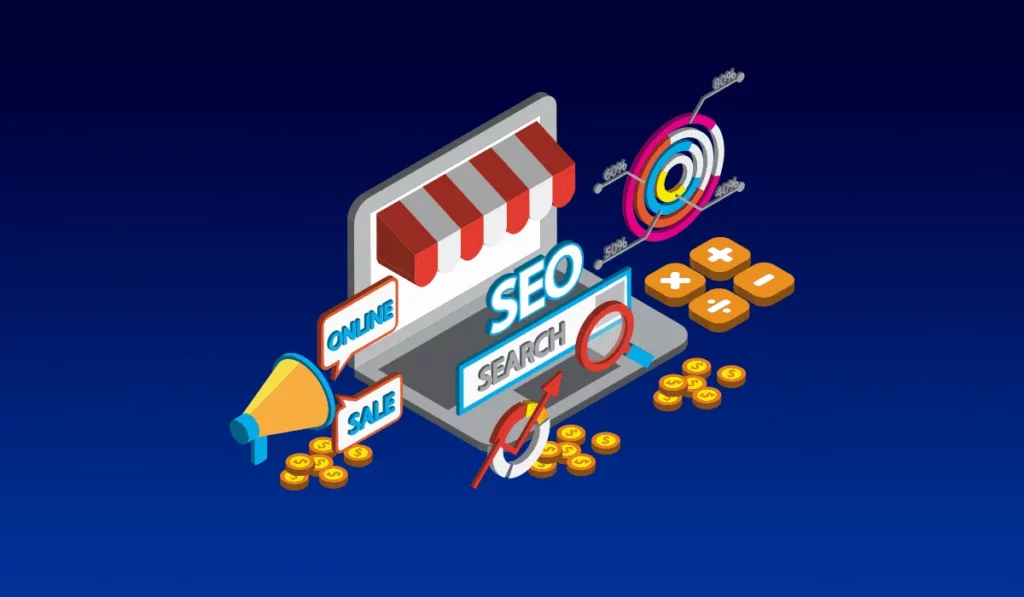E-commerce SEO: How to Rank Your Online Store
Gayathry Sunil23 Feb 2024
E-commerce has become an essential part of the business world.
With millions of online stores competing for consumer attention, standing out is a crucial task.
This is where E-Commerce SEO (Search Engine Optimization) comes into play.
In this blog, we will explore the concept of E-Commerce SEO, e-commerce SEO tips, and some E-Commerce SEO tools for the success of your online businesses.

What’s Ahead
What Is E-Commerce SEO?
E-Commerce SEO, or E-Commerce Search Engine Optimization, refers to optimizing an online store’s website to improve its visibility in search engine results pages (SERPs).
It enhances website elements such as product descriptions, meta tags, and site structure to align with search engine algorithms.
By employing relevant keywords, creating quality content, and improving user experience, e-commerce SEO aims to increase organic traffic and boost sales.
Effective strategies include optimizing product pages, building high-quality backlinks, and ensuring mobile compatibility.
Ultimately, E-commerce SEO helps online businesses rank higher in search results, attracting more potential customers and driving revenue growth.
As explained earlier, the ultimate goal of E-Commerce SEO is to attract more organic (non-paid) traffic to the e-commerce website, increase its visibility, and ultimately drive more sales.
Why E-Commerce Websites Should Care About SEO?
Enhancing your e-commerce website’s visibility through SEO is crucial, significantly impacting both traffic and sales.
By optimizing your online store, you can secure higher rankings in search results, ensuring a broader audience encounters your products.
But what’s the use? Increased long-term sales.
The advantages of integrating SEO into your e-commerce strategy go beyond just boosting visibility.
Here’s why it matters:
Cost-Effective Customer Reach
Utilizing SEO is like having a 24/7 digital sales representative.
It constantly directs potential customers to your site without the ongoing expense of paid advertisements.
Trust and Credibility Building
Organic search results foster trust.
When your online store appears naturally in search rankings, users are more likely to trust your brand.
This establishes a sense of credibility that paid ads might not achieve.
Competitive Edge
In the crowded landscape of online stores, SEO provides a distinct advantage.
If your competitors haven’t optimized their sites for search engines, you can surpass them in e-commerce website rankings.
This will make your products more visible to potential customers.
How to Rank Your Online Store?
In the fiercely competitive e-commerce sector, achieving high rankings in search engine results is crucial for the success of your online store.
Effective search engine optimization (SEO) can significantly impact your visibility, drive organic traffic, and ultimately boost sales.
Let’s explore some useful e-commerce SEO tips to make your website rank high.
Do Proper Keyword Research for E-commerce
The first and important E-Commerce SEO tip is that start your SEO journey by conducting thorough keyword research.
Identify relevant keywords and phrases that potential customers might use when searching for products similar to yours.
Utilize tools like Google Keyword Planner, SEMrush, or Ahrefs to discover high-performing keywords.
Incorporate these keywords strategically into your product titles, descriptions, and meta tags.
Optimizing Product Pages
Optimize your product pages for both users and search engines.
Craft compelling and unique product descriptions that not only highlight features but also address customer needs and concerns.
Use high-quality images, include customer reviews, and ensure that your product pages load quickly.
Search engines reward well-optimized and user-friendly product pages by ranking them higher.
Creating High-Quality Content
Develop a comprehensive content strategy that goes beyond product pages and exceeds the limitations of traditional marketing approaches.
Create blog posts, guides, and articles related to your industry or niche.
High-quality, relevant content not only engages your audience but also attracts backlinks, a critical factor in search engine rankings.
Regularly update your blog with fresh and valuable content to keep both users and search engines coming back for more.
Internal Linking and Site Structure
Enhance your site’s navigation and user experience through internal linking.
Link-related product pages, blog posts, and relevant content to guide visitors through your site.
A well-structured site with logical navigation helps search engines understand the hierarchy of your pages, improving overall crawlability and indexing.
Avoid Duplicate Pages and Content
Duplicate content can harm your SEO efforts.
Ensure that each page on your site offers unique and valuable information.
Use canonical tags to indicate the preferred version of a page, and regularly check for duplicate content issues using tools like Screaming Frog or Google Search Console.
Make Sure Your Website Is User-Friendly
User experience (UX) is a crucial factor in search engine rankings.
A mobile-responsive design, fast loading times, and an intuitive navigation structure contribute to a positive user experience.
Make sure to contact an expert e-commerce development agency to deliver a website that is creative and user-friendly.
When evaluating the authority and relevancy of your website, Google takes these things into account.
Make Sure You Are Doing Technical SEO for Your E-Commerce Website
Pay attention to technical aspects that impact your site’s performance.
Optimize your website’s loading speed, fix broken links, and implement schema markup to provide search engines with more information about your products.
Regularly audit and update your site for crawl errors and fix any issues promptly.
Some E-commerce SEO Tools
Utilizing powerful SEO tools can significantly enhance your online visibility, drive targeted traffic, and ultimately boost sales.
To achieve a successful ranking for an e-commerce website, it’s crucial to implement a comprehensive SEO strategy.
Here, we explore some essential e-commerce SEO tools that can make a substantial difference in your digital marketing efforts.
Google Analytics
Google Analytics is a key tool for understanding website traffic and user behavior.
It provides valuable insights into the performance of your e-commerce site.
It allows you to analyze user demographics, track conversions, and identify top-performing pages.
By using Google Analytics, you can make data-driven decisions to optimize your site for a better user experience and increased conversions.
Key Features:
- Traffic analysis
- User behavior tracking
- Conversion tracking
- E-commerce tracking for sales data
Google Search Console
Complementing Google Analytics, Google Search Console is another vital tool for monitoring and improving your site’s presence in Google’s search results.
It helps you identify and fix indexing issues, submit sitemaps, and understand how Googlebot crawls and indexes your e-commerce site.
Utilizing this tool ensures that your online store is effectively communicating with search engines.
Key Features:
- Performance reports
- Index coverage
- URL inspection
- Sitemap submission
SEMrush
SEMrush is an all-in-one SEO tool that provides comprehensive insights into your competitors and helps you identify attractive keywords.
SEMrush can be invaluable for e-commerce by enabling effective keyword research and tracking the organic performance of your competitors.
Additionally, it aids in optimizing your product pages for better visibility in search engine results.
Key Features
- Keyword research
- Competitor analysis
- Site audit
- Backlink analysis
Screaming Frog
Screaming Frog is a powerful website crawler that allows you to audit and analyze your site’s SEO health.
For e-commerce websites with a large number of pages, Screaming Frog helps identify issues such as broken links, duplicate content, and missing meta tags.
This tool is essential for maintaining a well-optimized and easily navigable website.
Key Features
- Website crawling
- SEO audit
- Broken link detection
- Duplicate content analysis
Ahrefs
Ahrefs is a comprehensive SEO toolset that provides insights into your website’s backlink profile, keyword rankings, and content performance.
For e-commerce, Ahrefs helps you understand which products are gaining interest and analyze your competitors’ backlink strategies.
It also aids in the refinement of your content strategy in order to improve your SEO rankings.
Key Features:
- Backlink analysis
- Keyword research
- Content explorer
- Site audit
By incorporating these tools into your SEO strategy, you can optimize the ranking of your e-commerce website.
You can easily gain a competitive edge and position your online store for sustained success in the online marketplace.
Conclusion
Understanding E-Commerce SEO, especially focusing on ranking e-commerce websites, is crucial for the success of online businesses.
By implementing E-Commerce SEO tips like conducting comprehensive keyword research, you can significantly enhance your online presence and drive more traffic to your website.
Understanding E-commerce SEO will empower you to optimize your site effectively and stay ahead of the competition.
Additionally, utilizing various SEO tools will further amplify the impact of your efforts.
It will help you improve your store’s search engine rankings and attract a larger audience.
With a strategic approach to E-commerce SEO, you can position your online store for success in today’s competitive digital landscape.
Latest Post

5 Do’s and Don’ts When It Comes To SEO
 18 Sep 2023
Readmore
18 Sep 2023
Readmore
Want to learn more about the digital marketing service we provide?
Contact Us to Get Started!




